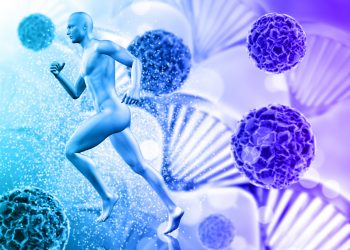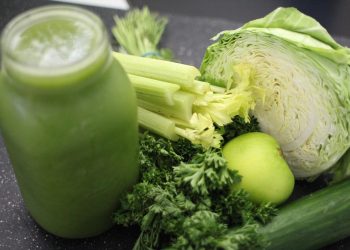NAD levels—they’re not just some scientific jargon you can ignore. These tiny molecules play a monumental role in your body’s energy production, DNA repair, and even aging. When your NAD levels dip, you might feel sluggish, unfocused, or even more prone to illness. So, let’s dive into how you can boost those levels naturally, ensuring you feel vibrant and alive.
Contents
What Is NAD and Why Should You Care?
NAD, or nicotinamide adenine dinucleotide, is a coenzyme found in every cell of your body. Think of it as the spark plug for your cellular engine. It’s crucial for converting food into energy and helps in repairing your DNA. With age, stress, and lifestyle choices, your NAD levels can diminish, which can lead to fatigue, cognitive decline, and a host of health issues.
Understanding the significance of NAD is essential. Not only does it fuel your energy levels, but it also supports cellular repair and overall vitality. This isn’t just about living longer; it’s about feeling great while doing it.
The Connection Between NAD and Aging
As you age, your NAD levels naturally decline. This reduction is linked to various age-related health issues, including metabolic disorders and neurodegenerative diseases. By increasing your NAD levels, you may boost your health span—the period during which you remain healthy, active, and engaged in life.
So, how can you naturally increase your NAD levels? Here are seven proven methods that could make a world of difference in your life.
1. Embrace a Healthy Diet
Your food choices matter. Opt for whole, nutrient-dense foods that are rich in vitamins and minerals. Here’s what to include:
- Leafy Greens: Spinach, kale, and collard greens are packed with nutrients.
- Nuts and Seeds: Almonds and sunflower seeds provide healthy fats and proteins.
- Legumes: Beans and lentils are excellent sources of protein and fiber.
- Berries: Blueberries and strawberries are loaded with antioxidants.
Additionally, consider incorporating foods high in niacin, a precursor to NAD. These include:
- Chicken and turkey
- Fish, especially tuna and salmon
- Peanuts and mushrooms
2. Intermittent Fasting
Have you heard of intermittent fasting? It’s not just a trend; it’s a powerful tool for boosting NAD levels. By cycling between periods of eating and fasting, you give your body a chance to repair itself. Research suggests that fasting can increase NAD levels by promoting the activity of enzymes that produce NAD.
Here’s how to get started:
- Time-Restricted Eating: Limit your eating to an 8-hour window each day.
- 24-Hour Fasts: Try fasting once a week to give your body a reset.
3. Get Moving: Exercise Regularly
Move your body! Regular physical activity can significantly increase NAD levels. Exercise enhances the production of the enzyme NAMPT, which is vital for NAD synthesis.
Aim for:
- Aerobic Exercise: Think brisk walking, cycling, or swimming.
- Strength Training: Incorporate weights or bodyweight exercises into your routine.
Even short bursts of activity can help. A quick 10-minute walk or a few minutes of stretching can stimulate your metabolism and boost your NAD levels.
4. Prioritize Sleep
Sleep isn’t just for recharging; it’s essential for maintaining healthy NAD levels. Poor sleep can lead to decreased NAD levels and overall fatigue. Aim for 7-9 hours of quality sleep each night.
To promote better sleep:
- Establish a regular sleep schedule.
- Create a calming bedtime routine.
- Keep your bedroom dark and cool.
A well-rested body is a body that can produce higher levels of NAD.
5. Consider Supplements
Sometimes, your diet and lifestyle may not be enough. Certain supplements can help boost your NAD levels. Here are a few to consider:
- Nicotinamide Riboside (NR): A direct precursor to NAD, NR has been shown to significantly increase NAD levels in human studies.
- Nicotinamide (NAM): This form of vitamin B3 can also help raise NAD levels.
- Resveratrol: Found in red wine, this antioxidant is believed to promote NAD production.
Always consult with a healthcare provider before starting any new supplement regimen to ensure it’s right for you.
6. Manage Stress
Chronic stress is a hidden enemy. It can lead to decreased NAD levels and increased inflammation. Finding ways to manage your stress is crucial for maintaining your overall health.
Try these stress-relief techniques:
- Meditation: Just a few minutes a day can help calm your mind.
- Yoga: This combines physical movement with mindfulness, reducing stress and increasing well-being.
- Deep Breathing Exercises: Simple yet effective for reducing anxiety.
Your mental health matters just as much as your physical health. Prioritize it!
7. Sunlight and Nature
Don’t underestimate the power of nature. Getting outside and soaking up some sunlight can enhance your well-being. Sunlight exposure helps your body produce vitamin D, which is linked to NAD metabolism.
Make time for:
- Daily Walks: Spend time outdoors, whether it’s a park or a nature trail.
- Gardening: Connect with the earth and cultivate your own food.
Nature has a unique way of rejuvenating your spirit and boosting your health.
Bottom Line
Increasing your NAD levels naturally is not just a task; it’s a journey toward better health and vitality. By embracing a healthy diet, exercising regularly, managing stress, and prioritizing sleep, you can empower your body to produce the energy it needs to thrive. Remember, every small step counts.
So, take charge of your well-being. Start today, and watch how these changes can transform your life.
FAQs
1. What are the symptoms of low NAD levels?
Symptoms can include fatigue, brain fog, mood swings, and increased susceptibility to illness.
2. How quickly can I see results from these methods?
Results can vary; some may feel changes in energy levels within weeks, while others may take longer.
3. Are there any risks associated with NAD supplements?
While generally safe, it’s best to consult a healthcare provider before starting any new supplements, especially if you have underlying health conditions.
Your body deserves the best. Start implementing these strategies today, and feel the difference!
Get Your FREE Natural Health Guide!
Subscribe now and receive our exclusive ebook packed with natural health tips, practical wellness advice, and easy lifestyle changes — delivered straight to your inbox.














